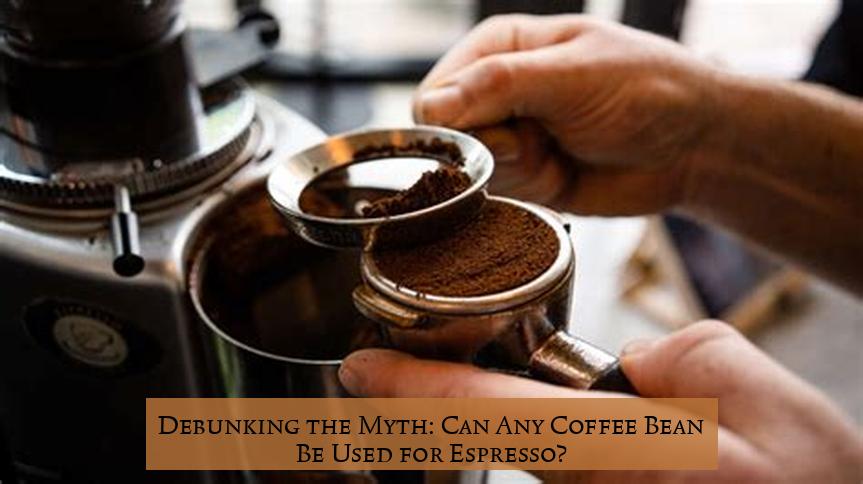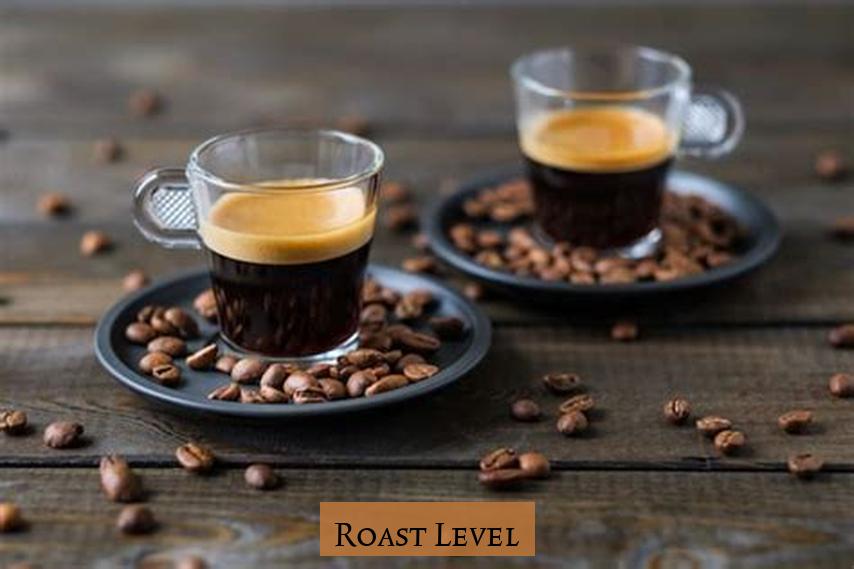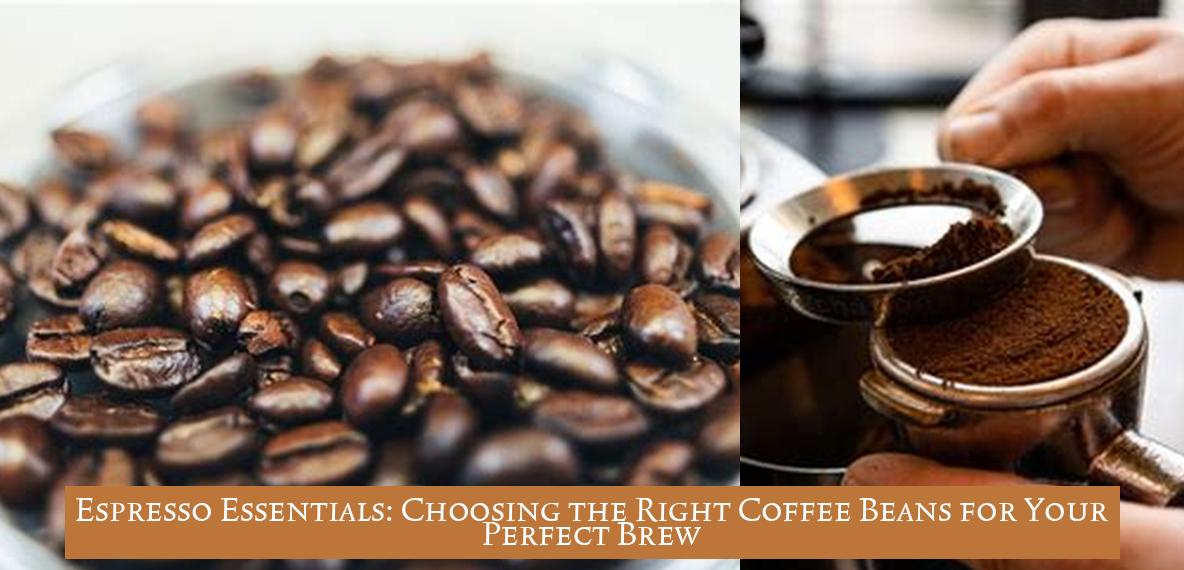Debunking the Myth: Can Any Coffee Bean Be Used for Espresso?
So, you’re standing in line at your favorite coffee shop, eyeing the menu and contemplating that much-needed espresso shot. But wait! Can any coffee bean be used for espresso? Let’s unravel the mystery and discover the secret behind crafting the perfect espresso. From roast levels to extraction time, we’ll dive into the factors that make all the difference in your morning pick-me-up. Get ready to elevate your coffee game and debunk the age-old myth with a shot of espresso enlightenment!
Key Takeaways
- Any coffee bean can be used for espresso, as espresso is a brewing method, not a specific type of bean.
- Medium to darker roasted coffees are recommended for making espresso as they provide a more consistent taste.
- Regular coffee beans can be used for espresso, but they may lack the distinct bitter taste of traditional espresso.
- It’s best to avoid very light and very dark roasts when choosing beans for making espresso.
- Beans with an abundance of oil on the surface and feeling oily are not ideal for use in an espresso machine.
- Espresso beans are often preferred for making espresso due to their ability to deliver uniformity, body, and flavor in the shot of espresso.
Debunking the Myth: Can Any Coffee Bean Be Used for Espresso?

Espresso, a beloved coffee beverage known for its rich, concentrated flavor, has often been associated with specific coffee beans. However, the truth is that any coffee bean can be used to create this delectable brew. Espresso, in essence, is a method of brewing coffee rather than a distinct type of bean.
The misconception that only certain beans are suitable for espresso stems from the fact that different roasts and blends can yield varying flavors and characteristics in the final beverage. To achieve the quintessential espresso experience, medium to darker roasts are often recommended. These roasts offer a more robust and consistent taste profile, making them ideal for espresso brewing.
Factors to Consider When Choosing Coffee Beans for Espresso
While any coffee bean can be used for espresso, the choice of beans can significantly impact the flavor and quality of the resulting brew. Here are a few key factors to keep in mind when selecting coffee beans for espresso:
Roast Level

The roast level plays a crucial role in determining the flavor profile of espresso. For espresso, medium to darker roasts are preferred as they provide a more pronounced and balanced taste. Lighter roasts, while offering a brighter acidity, may lack the depth and body desired in an espresso.
Oil Content
The oil content of coffee beans can affect their suitability for espresso brewing. Beans with an excessive amount of oil on their surface may clog the portafilter and hinder the brewing process. It is advisable to avoid beans that appear oily to the touch.
Blend or Single Origin
Espresso can be crafted using a blend of different coffee beans or single-origin beans from a specific region. Blends offer a complex and nuanced flavor profile, while single-origin beans showcase the unique characteristics of a particular growing region. The choice between a blend or single origin depends on personal preference and the desired flavor profile.
Understanding the Differences Between Coffee and Espresso Beans
Despite the common misconception, there is no scientific distinction between coffee beans and espresso beans. All coffee beans, regardless of their intended use, originate from the same Coffea plant. The differences that arise stem from the roasting process and brewing method.
Coffee beans are typically roasted to varying degrees, ranging from light to dark, each level imparting different flavor characteristics. Espresso, on the other hand, refers to coffee brewed using a specific method that employs high pressure to force hot water through finely ground coffee. This unique brewing process yields a concentrated, flavorful beverage with a distinctive crema on top.
The Art of Crafting the Perfect Espresso
While the choice of coffee beans is essential, the art of crafting the perfect espresso extends beyond the beans themselves. Here are a few additional factors to consider:
Grind Size
The grind size of the coffee beans affects the extraction rate and flavor of the espresso. A finer grind produces a more concentrated and intense brew, while a coarser grind yields a lighter and less intense espresso.
Water Temperature
The temperature of the water used for brewing espresso is crucial. Ideally, the water should be between 195-205°F (90-96°C) to extract the optimal flavors from the coffee beans.
Extraction Time
The extraction time, or the duration of contact between the hot water and the ground coffee, plays a vital role in determining the strength and flavor of the espresso. A shorter extraction time results in a weaker espresso, while a longer extraction time can lead to bitterness.
Conclusion
In conclusion, the notion that only specific coffee beans can be used for espresso is a misconception. Any coffee bean can be employed to create this delectable beverage, provided that appropriate roasting and brewing techniques are followed. By understanding the factors that influence the flavor and quality of espresso, coffee enthusiasts can experiment with different beans, roasts, and blends to discover their perfect espresso experience.
Can any coffee bean be used for espresso?
Yes, any coffee bean can be used for espresso, as espresso is a brewing method, not a specific type of bean. It’s the brewing process that distinguishes espresso, not the type of bean.
Can I use regular coffee beans for espresso?
You can use regular coffee beans for espresso, but they may lack the distinct bitter taste that is characteristic of traditional espresso. Regular coffee beans are typically roasted lighter, retaining the full flavor of the beans, making them better suited for various brewing techniques, but not for high-pressure ones like espresso.
Does it matter what beans you use for espresso?
Yes, it does matter. Medium to darker roasted coffees are recommended for making espresso as they provide a more consistent taste. Lighter roast coffees can sometimes be too bright and acidic for some as a straight espresso shot.
How do you know if coffee beans are good for espresso?
When choosing beans for making espresso, it is best to avoid very light and very dark roasts. Opt for beans that have been roasted in the light-medium to moderately dark range, as they work best for the espresso brewing method.
Are some beans not good for espresso?
Yes, some beans are not ideal for use in an espresso machine. Beans with an abundance of oil on the surface and feeling oily are not suitable for use in an espresso machine. Additionally, it’s best to avoid very light and very dark roasts when choosing beans for making espresso.
Are espresso beans different from regular coffee beans?
No, espresso beans are not inherently different from regular coffee beans. The only thing that makes an espresso an espresso is that it was brewed using an espresso machine. Any coffee bean can be used with any brewing device.

